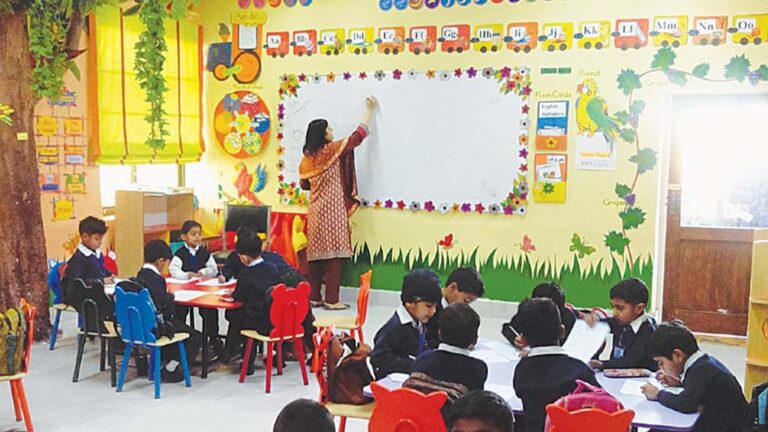The landscape of education in Pakistan is undergoing a significant transformation. As we approach the event scheduled for November 15, 2024, centered on “Innovative Teaching Methods: Transforming Classrooms in Pakistan,” it’s essential to explore the current educational challenges and how innovative teaching methods are paving the way for a brighter future.
The Current Educational Landscape
Pakistan’s education system faces numerous challenges, including outdated curricula, limited access to quality resources, and a high student-to-teacher ratio. According to recent reports, millions of children are out of school, and those who attend often receive an education that does not adequately prepare them for the demands of the modern world. Additionally, the traditional rote-learning approach has hindered critical thinking and creativity among students.
Despite these challenges, there is a growing movement toward embracing innovative teaching methods that foster a more engaging, inclusive, and effective learning environment. The upcoming event aims to showcase these innovative practices, bringing together educators, policymakers, and thought leaders to share insights and strategies.
What Are Innovative Teaching Methods?
Innovative teaching methods are instructional strategies that prioritize active learning, critical thinking, and collaboration. These methods often incorporate technology, hands-on activities, and real-world applications to make learning more relevant and engaging. Some notable innovative approaches include:
- Project-Based Learning (PBL): This method encourages students to learn by engaging in projects that address real-world problems. Students collaborate, conduct research, and present their findings, fostering teamwork and critical thinking.
- Flipped Classroom: In this approach, traditional homework and classwork are reversed. Students learn new content at home through videos or readings and use classroom time for discussion, problem-solving, and hands-on activities, enhancing their understanding.
- Gamification: By incorporating game elements into the learning process, educators can make lessons more interactive and fun. This method boosts student motivation and engagement, particularly among younger learners.
- Differentiated Instruction: Recognizing that students have varied learning styles and abilities, this method tailors teaching strategies to meet individual needs. Teachers may use different materials, groupings, or assessment methods to ensure all students can succeed.
- Technology Integration: Utilizing digital tools and resources, such as educational apps, online resources, and interactive platforms, can enhance learning experiences. This integration allows for personalized learning paths and easier access to information.
Success Stories from Pakistan
Several schools and educators across Pakistan have already begun implementing innovative teaching methods with remarkable success. For instance, a project-based learning initiative in a Karachi school resulted in students developing community service projects that addressed local issues, such as waste management and water conservation. These projects not only educated students but also positively impacted their communities.
In rural areas, teachers have successfully integrated technology through mobile learning applications, enabling students to access educational resources that were previously unavailable. Such initiatives demonstrate that innovative teaching can bridge educational gaps, even in under-resourced regions.
The Role of Educators and Policymakers
The transformation of classrooms in Pakistan relies heavily on the commitment of educators and policymakers. Teachers play a crucial role in adopting and implementing these innovative methods. Professional development programs are essential to equip educators with the necessary skills and knowledge.
Furthermore, policymakers must support these initiatives by providing funding, resources, and infrastructure improvements. Collaboration between the government, educational institutions, and NGOs can create a robust framework for innovation in education.
The Importance of Community Engagement
Community involvement is also vital in transforming education. Engaging parents, local organizations, and businesses can create a supportive network for schools. When communities understand and participate in educational initiatives, students are more likely to succeed.
For example, initiatives that encourage parental involvement in school activities have shown to improve student performance. Workshops that educate parents about new teaching methods can also bridge the gap between home and school, fostering a holistic approach to education.
Looking Ahead: The Event on November 15, 2024
The upcoming event on November 15, 2024, will serve as a platform for sharing best practices, success stories, and research findings related to innovative teaching methods. Attendees will have the opportunity to participate in workshops, panel discussions, and networking sessions with experts and practitioners in the field.
This event will not only highlight the progress made in transforming classrooms but also inspire further innovations and collaborations to address the challenges faced by the education system in Pakistan.
Conclusion – Transforming Classrooms in Pakistan
Transforming classrooms in Pakistan is becoming a cornerstone of educational reform, aimed at enhancing learning outcomes, fostering creativity, and equipping students with modern skills. By transforming classrooms in Pakistan, schools and institutions are adopting innovative teaching methods, integrating digital tools, and creating interactive learning environments that engage students more effectively. These efforts ensure that education in Pakistan evolves in line with global standards while addressing local challenges.
The process of transforming classrooms in Pakistan is not limited to technology alone. It involves teacher training, curriculum updates, and infrastructure improvements, all designed to make learning more accessible, inclusive, and effective. By focusing on transforming classrooms in Pakistan, educators and policymakers are laying the foundation for a generation of students capable of critical thinking, problem-solving, and innovation. Such initiatives play a vital role in nurturing talent and fostering intellectual growth across the country.
Moreover, transforming classrooms in Pakistan contributes directly to building a Mazboot Pakistan. By investing in education, modernizing learning spaces, and encouraging creative teaching strategies, the nation ensures that its youth are prepared for future challenges and opportunities. Every step in transforming classrooms in Pakistan strengthens the educational ecosystem, empowers teachers and students alike, and promotes a culture of continuous learning and development.
In conclusion, transforming classrooms in Pakistan is more than an educational trend—it is a movement toward national progress. By prioritizing innovation, inclusivity, and quality education, Pakistan is creating a Mazboot Pakistan where students are equipped to thrive academically, socially, and professionally. The ongoing efforts in transforming classrooms in Pakistan signal a promising future for the country, where education drives growth, development, and sustainable success.

